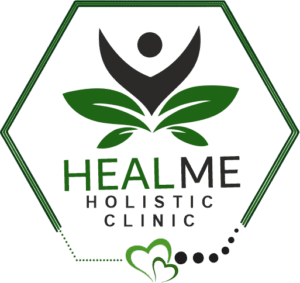World Stroke Day
Blog by: Team HealMe
Checkout more blogs: https://healme.in/knowledge-section/
Checkout healthy products: https://healcart.in
World Stroke Day
#WorldStrokeDay /#Anyone# Anytime# Anywhere #1in4 / #DontBeTheOne
A stroke also known as a Brain Attack is an interruption of the blood supply to any part of the brain. It happens when the blood flow to a part of the brain is interrupted because a blood vessel in the brain is blocked or burst open. This stops the flow of blood and oxygen to the brain causing permanent damage.
Stroke is a leading cause of death and disability worldwide.80 percent of strokes are preventable.
Stroke is a leading cause of death and disability worldwide.80 percent of strokes are preventable.
WHY DO WE OBSERVE WORLD STROKE DAY
- It informs us of strokes and their treatment
Strokes can be very dangerous if not prevented or left untreated. Even a slight delay in getting the right treatment can result in catastrophic changes to a person’s life. Thus, it is important to learn about strokes and ways we could stop them from happening. - It’s a reminder of healthy living
Strokes can be extremely devastating, as they have the ability to leave you crippled or take your life. Make the decision to start adopting healthy living so that you avoid this. - It’s a reminder of precious moments
Illnesses can not only rob us of our health, but they can also steal the precious moments in life that everyone cherishes. So, take hold of your life and live an active life full of those precious times.
Many people think a stroke happens in the heart, but it happens in the brain.
Many people think a stroke happens in the heart, but it happens in the brain.
Strokes happen in one of two main ways:
- A clot blocks the blood flow to your brain. These are “ischemic” strokes.
- A blood vessel bursts or leaks in your brain. It is called a “hemorrhagic” stroke.
With either type of stroke, brain cells can’t live more than a few minutes without oxygen.
How to spot a stroke F.A.S.T.
When it comes to spotting stroke here’s how you can remember the signs:
- F: Face drooping, smile, and see if one side of the face droops.
- A: Arm weakness, Raise both arms. Does one arm drop down?
- S: Speech Difficulty, Say a short phrase and check for slurred or strange speech.
- T: If the answer to any of these is yes, time to call for help.
Other Stroke Symptoms
Watch for Sudden:
- NUMBNESS or weakness of the face, arm, or leg, especially on one side of the body
- CONFUSION, trouble speaking or understanding speech
- TROUBLE SEEING in one or both eyes
- TROUBLE WALKING, dizziness, loss of balance or coordination
- SEVERE HEADACHE with no known cause
Prevention
- These are the most important steps you can take to lower your risk of stroke:
- Stop smoking – Cigarette smoking decreases good cholesterol and increases blood pressure. When you stop smoking, your blood circulation and oxygen supply improve.
- Change your eating habits – A healthy diet full of nutrition and antioxidants helps provide essential vitamins and minerals to your body. Fruits, vegetables, and fiber-rich foods reduce cholesterol levels, inflammation of the body, enhance the level of good gut bacteria, and lead to improved digestion. All of these factors improve blood circulation and prevent stroke.
- Manage your cholesterol and triglycerides levels – Diet and lifestyle considerations have a significant impact on blood cholesterol and triglycerides. Choosing natural, unsaturated fats instead of trans fats, lowering calorie consumption, and daily activity may reduce blood triglycerides and bad cholesterol in no time. Thus preventing stroke
- Control your diabetes –Uncontrolled diabetes and blood sugar can damage the arteries that carry blood to the heart over time that can double the risk of developing heart disease and stroke. Therefore, it is essential to keep diabetes under control
- Exercise regularly – Exercising helps you sustain a healthier weight and lower your blood pressure and cholesterol. Thus, preventing the risk of heart disease and stroke.
- Manage stress – Feeling depressed, upset, or isolated for a more extended period can make a person more likely to have heart disease or stroke.
- Limit alcohol consumption – Drinking alcohol in excess will increase your blood pressure. Additional calories are then added, which can induce weight gain—all of these increase the risk of high blood pressure, heart disease, and stroke.
- Take proper sleep – The chances of high blood pressure, obesity, and diabetes are increased with deprivation of sleep. These conditions can further
